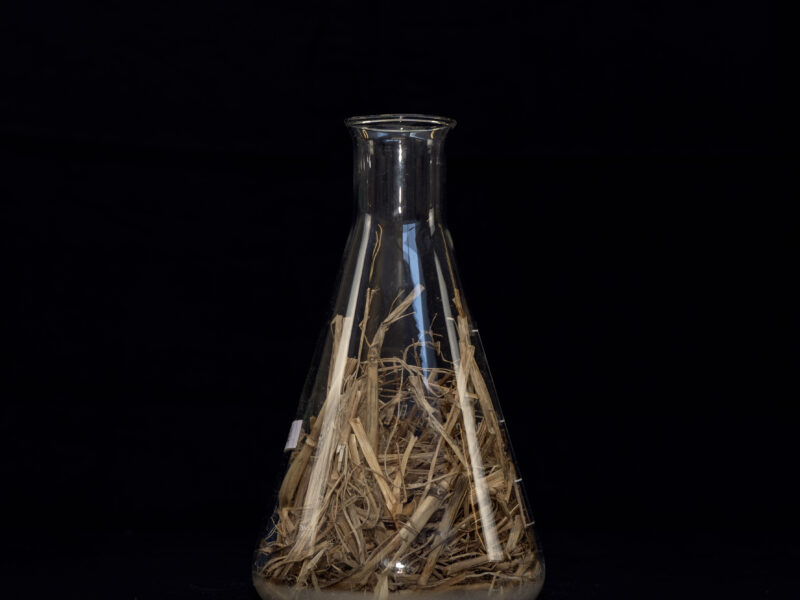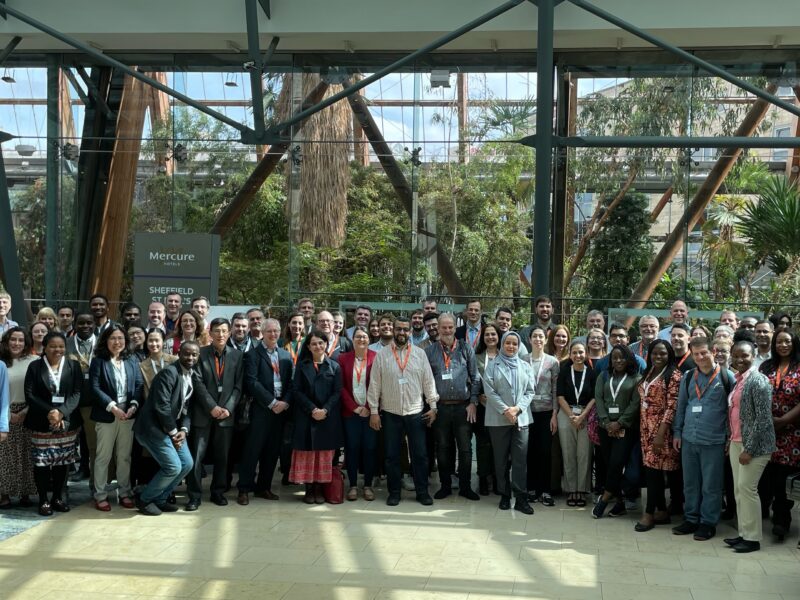Enabling unspecific peroxygenases for the valorisation of renewable compounds
- Project lead
- Gideon Grogan
- Institute
- University of York
Summary:
A greener and more sustainable chemicals industry depends on identifying sources of renewable chemicals from Nature, but also on developing safer methods of synthesising more valuable chemicals from those renewables. Nature produces many abundant molecules, such as fatty acids, waxes, steroids, aromatics and terpenes in renewable plant material that can go to waste, but these can be chemically transformed to give them added value, via a process known as ‘valorisation’. A sustainable method of valorisation is offered by enzymes: natural bio-catalysts that can perform exquisitely selective chemical reactions using conditions that are much greener than their ‘chemical’ counterparts.
One example of this is in oxygenation, or the introduction of oxygen into molecules to form alcohols from hydrocarbons. Unspecific Peroxygenases (UPOs) are highly active, safe and stable enzymes that are produced by fungi. UPOs are emerging as a powerful addition to the chemistry toolbox as they can catalyse the oxygenation of renewable molecules to give more valuable oxygenated intermediates, but they do this at ambient temperature and pressure, in water as a solvent, and using only the cheap oxidant hydrogen peroxide as the source of oxygen.
To enable UPOs to be more widely applied in industrial chemistry, they need to be made more widely available and also characterised, so that users can identify the most valuable enzymes for their process. In recent work, our groups at York have been researching the possible applications of UPOs in a range of chemical reactions, but would like to extend our studies to a much larger range of UPOs from nature. In this project we will partner with Aminoverse, a company who prepare UPO enzyme panels for testing by project partners, and who would like to better characterise their enzyme panels with respect to their ability to transform renewable molecules. This collaboration will yield valuable data on the activity and selectivity of a large range of UPOs, helping to recommend them for much wider use in industrial chemistry and bioprocessing.
This project is ongoing and an update on the outcomes and impact will be published on completion.
Academic partner: Gideon Grogan, University of York, Will Unsworth, University of York
Industrial partner: David Schoenauer, Aminoverse







